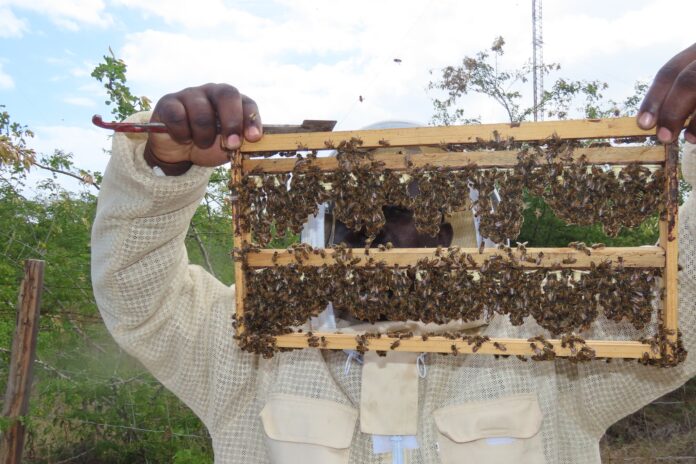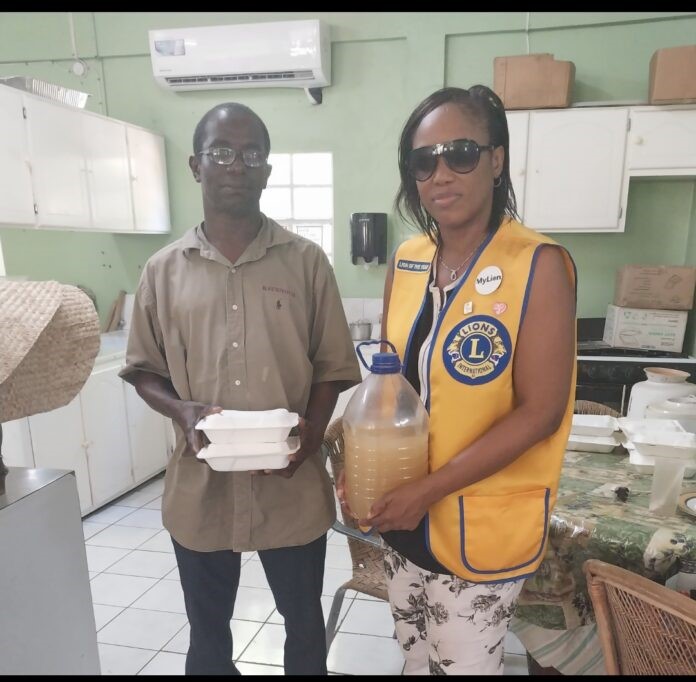A programme is underway to increase the Queen Bee numbers in Antigua and
Barbuda through an initiative involving the Antigua Beekeepers Cooperative
(ABC), the Iyanola Agriculture Collective of St. Lucia with technical support from
the Inter-American Institute for Cooperation on Agriculture (IICA).
The initiative has been ongoing over the past three weeks with the specific aim of
rearing queen bees. This initiative is the upscaling of a completed project funded
under the Global Environmental Facility (GEF) Small Grants Programme, entitled
“To promote the growth and sustainable development of the local pollinators
(Apiculture Industry) and local honey through training and production in
collaboration with the SVGBA and the Ministry of Agriculture”(2020 -2021).
A press release from the Ministry of Agriculture said one of the main objectives of
the project was to support the development of an Apiculture Industry in Antigua
and Barbuda through development of business models for commercial apiaries and
capacity building in beekeeping, and development of hive products.
The now completed project faced several challenges primarily brought on by the
COVID -19 pandemic. Restrictions on movement and imposed curfews triggered
implementation delays. In the end, the group embraced the opportunity to make
slight adjustments to the project, and built a new and fruitful partnership with the
Iyanola Apiculture Collective (IAC) through Mr. Richard Matthias, Master
Beekeeper from Saint Lucia.
Through this partnership, the main objectives were still achieved and beekeepers in
both Antigua and Barbuda were furnished with tools and equipment, trained in new
hive monitoring technology, and benefitted from hands on mentoring and capacity
building opportunities for queen rearing and hive management. The team also
scoured both islands’ terrain, seeking out suitable sites for queen rearing, and
evaluating potential foraging grounds for bees.
During the queen rearing training, Mr. John Fredrick and Mr. Richard Matthias
from IAC, Saint Lucia guided the activities, which were divided into practical and
theoretical sessions in both Antigua and Barbuda. Activities commenced in
Barbuda with the prepping and setting up of starter colonies to produce queen
cells, as well as re-introduction capacity building sessions in queen rearing and
hive management practices for the local beekeepers.
A total of Ninety larvae were grafted (90) in three batches, which resulted in 38
queen cells being produce. These will be distributed to the beekeepers in Barbuda.
In Antigua, a total of one hundred and twenty-seven (127) larvae were grafted,
which resulted in (111) queen cells produced an 87% success rate will be
distributed to the membership of the Cooperative, in Antigua The distributed
queens will be monitored and evaluated by senior beekeepers within the
Cooperative by collecting relevant data such as temperament, honey production as
well as brood production.
Over twenty-five (25) local beekeepers benefited from this project including 15
women. Continuous training using this method of increasing our local honey bee
population will be repeated at selective intervals during the year to strengthen the
Cooperative as well as increasing the bee population in Antigua and Barbuda



